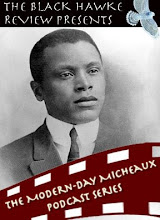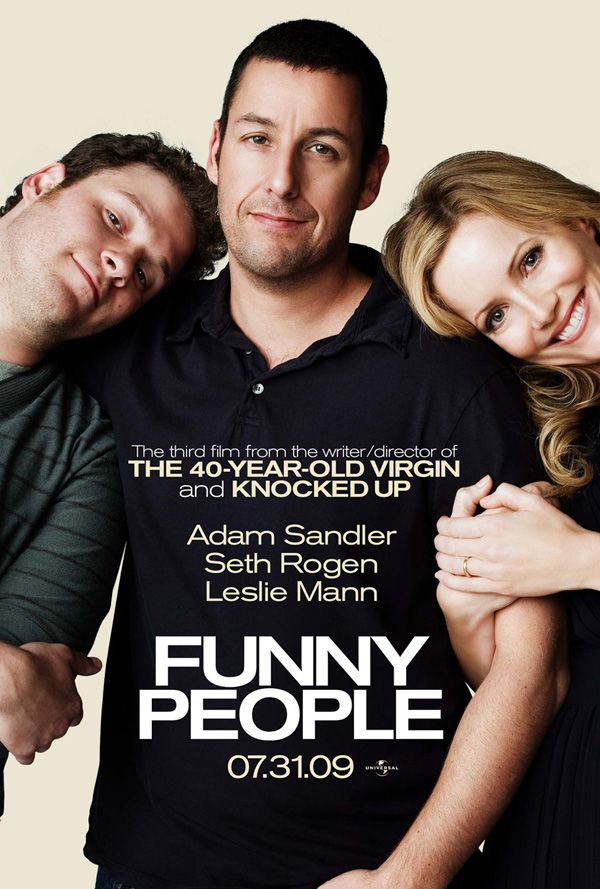 I’m Through with White Girls? Such a bold statement for a low-budget endeavor. Jay Brooks, a black, indie rock loving, single, comic book artist in his 30’s, blames his string of failed relationships on the common dominator between all his exes, being Caucasian. Hence, ‘Operation Brown Sugar”, a feeble attempt to find love by only dating sistahs. But when that plan ultimately fails, Brooks stops looking outside at the women’s skin color, and looks inside at his own commitment issues.
I’m Through with White Girls? Such a bold statement for a low-budget endeavor. Jay Brooks, a black, indie rock loving, single, comic book artist in his 30’s, blames his string of failed relationships on the common dominator between all his exes, being Caucasian. Hence, ‘Operation Brown Sugar”, a feeble attempt to find love by only dating sistahs. But when that plan ultimately fails, Brooks stops looking outside at the women’s skin color, and looks inside at his own commitment issues.A simple, refreshing, and endearing romantic comedy. There are not many laugh out loud moments but the film is quirky enough to keep one’s attention throughout. The film does have a purpose, to deliver a message about the irrelevance of race in relationships, but unlike a Spike Lee Joint, it doesn’t heavy-handedly smack you in the face with it. The performances are solid, but more impressive are the scripting of the characters, all of whom are made more real by their idiosyncrasies and complexity. Central character, Jay Brooks, smokes cigarettes through an ‘artistic flair’ and loves indie rock. His better half, Catherine, has multi-colored dreadlocks and fears public speaking due to her valley girl diction. Brook’s best friend’s family lack the same humor and complexity and seem to be taken out of Tyler Perry’s playbook, but only constitute a small portion of the screen time.
Many films have tackled the subject of Interacial Dating. New Beyonce-flick “Obsessed”, and Sidney Poiter’s & Bernie Mac’s remake of Guess Who’s Coming to Dinner deals with the complicated issues dating (or having an affair with) another race attracts. Lee’s Jungle Fever attempted to reason why attraction between races exits, posing the question: is it was love or curiosity. Although both examples are portrayed, the dominant storyline shows the downhill spiral of an interracial couple where race is the only reason their together. “Race Matters,” Lee says. I’m Though With White Girls claims the opposite. Whether white, black, or oddly enough Half-rican Canadian, the issues one brings to the table ultimately decide whether a relationship fails or soars, not race. The film only briefly recognizes the role cultural identity plays in all of Brook’s partnerships. After one break-up he complains she told him he “looked like Emmanuel Lewis” and to white women, all black guys look the same. Besides this minor issue the film tends to agree with American’s new popular consensus. With a black president-elect and increasing Hispanic minority positioned to become dominant, race is becoming irrelevant.
THE BLACK PERSPECTIVE:
Catherine writes about black folks but talks like a white cheerleader. She is half-black & Canadian but looks neither. Despite all this she is considered BLACK. Jay Brooks digs indie rock and is BLACK as well. In many films, as if color wasn’t enough, filmmakers often find the need to remind us what race their characters are. Either they talk “black” or act “black” or feel the need to overemphasize their African roots. In short, they’re defined by their blackness, but not in this film. Neither character fits the stereotypes of black people and are completely comfortable with it, a notion to be admired.
On another note, coming from a well-to-do family, Catherine’s black friend J.C. becomes increasingly high strung over whether her fiancé’s family will act “ghetto” at their wedding. She, in turns, becomes ghetto herself, yelling at visitors for bringing 40’s when it turns out only to be ice tea. Cited for the reason black men stray, black people often stereotype their own, and sometimes this gets in the way of seeing individuals for whom they really are.
One of the fiancé’s family members constantly reminisces how her male admirers flocked to her because of her “lightened” skin, despite the contrary. It’s a joke, but nether less brings up the subject of colorism, an issue in the black community not talked about enough. Obama, Will Smith, Beyonce, all light-skinned fixtures in Mainstream culture, but the question remains, would they all be so accepted if they had darker skin. While looking at their counterparts, Jesse Jackson, Wesley Snipes, and Kelly Rowland, they all hold a different position in culture and had to travel a different route to get there. Talent, and ambition are obvious parts of the equation, but so are the trends. Beyonce lightens her skin for magazine covers and Michael Jackson lightened his permanently. In a perfect society, we want to say race doesn’t matter, but is that only because the constant mash-up of cultures are bringing us closer together?
Rating:
 = 4 Stars
= 4 Stars = 4 Black Fists
= 4 Black Fists













.jpg)
No comments:
Post a Comment